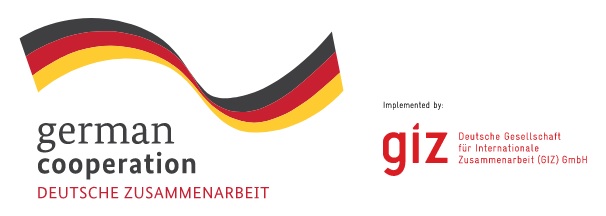Sector Network Transport, Environment, Energy, Water in Asia (TUEWAS), established in Bonn in 2002, serves as a platform for organised regional professional exchange and cooperation between GIZ experts in Asia and at GIZ head office. TUEWAS currently connects 82 projects in 16 countries in Asia
COMMISSIONING AGENCIES
German Federal Ministry for Economic Cooperation and Development (BMZ)
The German Federal Ministry for Economic Cooperation and Development (BMZ) is GIZ’s main commissioning party which has been working closely together for more than 30 years. BMZ is one of two ministries representing GIZ’s sole shareholder, the Federal Republic of Germany, on GIZ’s Supervisory Board. The Ministry commissions GIZ to implement advisory projects that enhance the capacities of individuals, organizations and societies to improve their living conditions through efficient and sustainable use of resources in order to attain their goals.
Federal Ministry for the Environment, Nature Conservation, Nuclear Safety and Consumer Protection (BMUV)
The Federal Ministry for the Environment, Nature Conservation, Nuclear Safety and Consumer Protection (BMUV) is responsible for a range of government policies that are reflected in the name of the ministry itself. The ministry has been working over 30 years to protect the public from environmental toxins and radiation, to promote the wise and efficient use of raw materials, to advance climate action and to ensure that natural resources are used in a way that protects the diversity of animal and plant species and preserves their habitats.
Federal Ministry for Economic Affairs and Climate Action
The major trends of the 21st century, notably globalisation, digitisation, demographic change, recent developments within the EU, and the energy transition all represent major challenges for German business to tackle. If we are to successfully address these issues, we need to make our social market economy shipshape for the future. This is the over-arching task for the Federal Ministry for Economic Affairs and Climate Action.
EUROPEAN UNION (EU)
The European Union (EU) and its member states collectively form the world’s largest development cooperation donor. This is also reflected in the work of the Deutsche Gesellschaft für Internationale Zusammenarbeit (GIZ) GmbH. One in six projects funded by the German Federal Ministry for Economic Cooperation and Development (BMZ) is now cofinanced by the EU. This makes the EU GIZ’s second largest financier overall.
As a German federal enterprise, GIZ contributes to the implementation of the EU’s political objectives and international obligations through its activities. To this end, GIZ works worldwide with and for the EU on a broad range of issues and provides support to the EU on behalf of the German Government, ranging from expert advice to project implementation on the ground.
FOR MORE INFORMATION, PLEASE VISIT WWW.EUROPEAN-UNION.EROPA.EU
 About GIZ
About GIZ
The Deutsche Gesellschaft für Internationale Zusammenarbeit (GIZ) GmbH is owned by the German government and with operations around the globe. GIZ provides services in the field of international cooperation for sustainable development. GIZ also works on behalf of other public and private sector clients both in Germany and overseas. As a service provider in the field of international cooperation for sustainable development and international education work, GIZ is dedicated to shaping a future worth living around the world. We have over 50 years of experience in a wide variety of areas, including economic development and employment promotion, energy and the environment, and peace and security.
